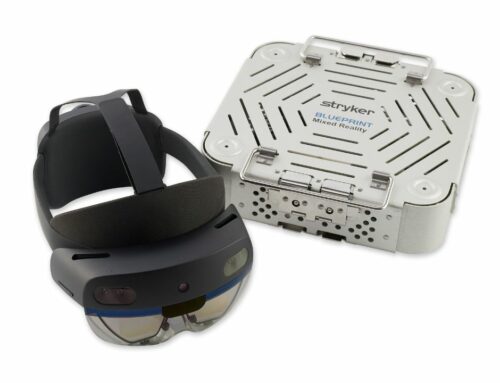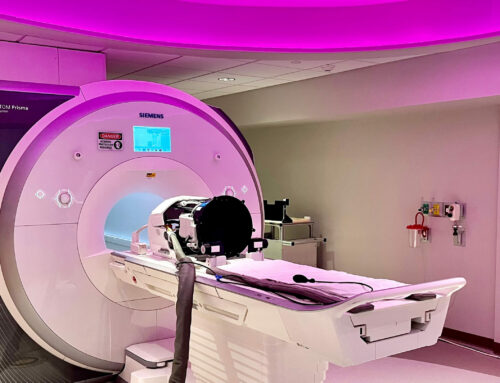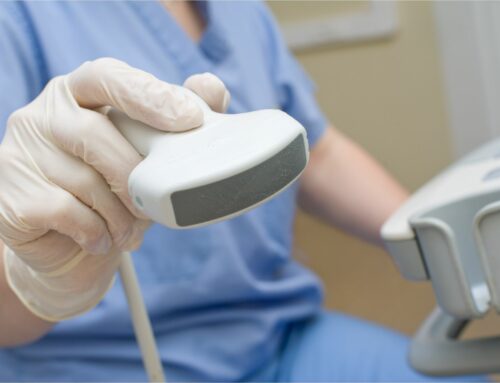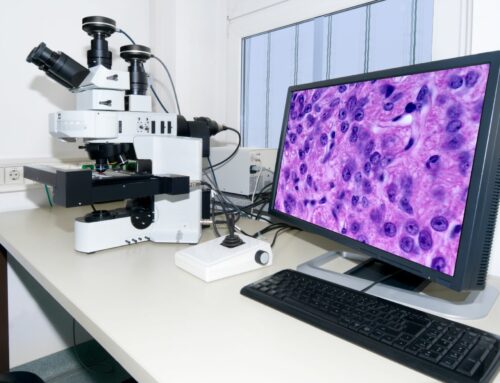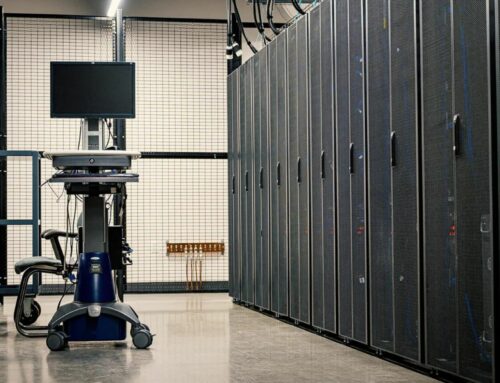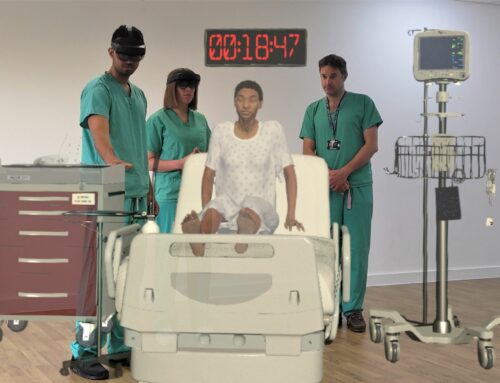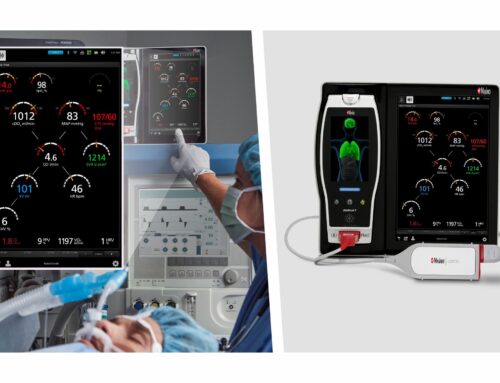annalise.ai has launched its comprehensive chest X-ray AI solution Annalise CXR, which detects 124 clinical findings and is a decision support tool for radiologists and clinicians. The company was originally formed as a joint venture between Australian healthcare technology company Harrison.ai, and one of the world’s largest radiology companies, I–MED Radiology Network.
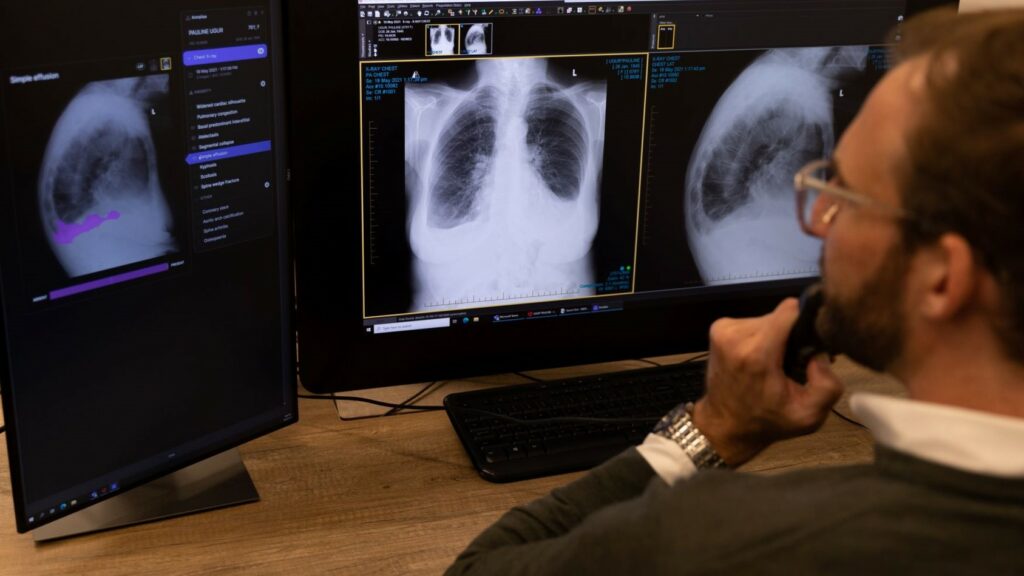
Photo courtesy of annalise.ai
Annalise CXR is currently CE marked for use in Europe and is available for clinical use in Australia and New Zealand but is not yet FDA approved. However, annalise.ai is currently engaging in a partnership with the Departments of Radiology at the University of Washington to validate the Annalise CXR algorithm on US demographic data.
The launch of Annalise CXR coincides with its publication of a peer-reviewed diagnostic accuracy study published by The Lancet Digital Health, on 1 July 2021, which is the largest of its kind ever undertaken in terms of the number of findings concurrently evaluated.
The study found that when used as an assist device, Annalise CXR significantly improved the ability for radiologists to perceive 102 chest X-ray (CXR) findings in a non-clinical environment, was statistically non-inferior for 19 findings and no findings showed a decrease in accuracy.*
The study also assessed the standalone performance of the model in a non-clinical environment against radiologists in identifying chest x-ray pathology, as well as investigating the effect of model output on radiologist performance when used as an assist device.
Annalise CXR’s AI model classification alone was significantly more accurate than unassisted radiologists for 117 (94%) of 124 clinical findings predicted by the model and was non-inferior to unassisted radiologists for all other clinical findings.**
Dr Catherine Jones – a thoracic radiologist and Chest Lead at annalise.ai – states: “The ability of the AI model to identify findings on chest x-rays is very encouraging. Radiologists and non-radiology clinicians incorporate clinical factors into decision making, but ultimately rely on perception of findings to underpin our clinical interpretation.
“Developing and validating a comprehensive AI model for chest x-rays required a careful, detailed approach based on robust methodology and focus on quality labelling, training, software development and thorough evaluation prior to clinical deployment”
annalise.ai CEO & Co-Founder, Dimitry Tran said Annalise CXR would provide significant benefits to patients and healthcare professionals: “A major challenge facing global health systems is that the number of scans requiring clinical interpretation is growing at a much greater pace than increases in the number of radiologists to interpret them,” Mr Tran said.
“Annalise CXR seamlessly integrates with regular workflows, highlighting findings on chest X-rays for review by the radiologist.
“We hope that the solution will increase radiology capacity, thereby reducing turnaround time; improving interpretation quality by providing clinicians with another set of eyes, and reducing the risk of backlogs,” he said.
The 124 clinical findings detected by Annalise CXR compares with just 75 findings found using the next most comprehensive CXR AI product, with most CXR AI products limited to fewer than 15 findings. Mr. Tran said many companies developing AI algorithms for medical imaging focused on narrow clinical findings rather than a comprehensive modality/body part solution.
“This approach limits the utility of AI as radiologists, requiring more clinically diverse AI tools that can detect a wide range of clinical presentations,” Mr. Tran said.
“Annalise CXR operates in a way that more closely mimics a radiologist’s own workflow, reading an entire chest X-ray image, both frontal and laterally, and methodically searching for multiple potential findings.
“This enables faster reporting and reduces the likelihood of missed diagnoses, as would be the case if a narrow AI solution detected a single finding and missed other clinically relevant findings elsewhere in the scan.”
The Lancet Digital Health publication’s multi-reader, multi-case (MRMC) diagnostic accuracy study evaluated the performance of Annalise CXR’s AI model. It found the diagnostic performance of the model was exceptional across the range of clinical findings and compared favorably to previously published models.
The study concluded that the excellent model performance could be at least partially attributed to the large number of studies labelled by radiologists for AI model training.
The Annalise CXR AI model – a deep learning convolutional neural network system – was trained on 821,681 chest X-ray images from 520,014 studies across 284,649 patients. The study assessed the performance of the radiologists alone and the same radiologists when using the AI model as an assist device when identifying pathology in a chosen dataset.
Twenty radiologists each reviewed 2,568 CXR studies both with and without the assistance of the Annalise CXR model, allowing adequate time between both arms of the study to minimize bias. Gold-standard ground truth labels were obtained from the consensus of three subspecialty thoracic radiologists with access to reports and clinical history.
Further details of the study results can be found here https://www.thelancet.com/journals/landig/article/PIIS2589-7500(21)00106-0/fulltext
About annalise.ai
With accelerating advances in medical imaging technology, radiologists and other healthcare providers are now expected to diagnose patients quickly and accurately.
annalise.ai fuses the highest quality imaging data with the very best in computer science to produce comprehensive AI clinical decision support solutions. Annalise CXR is a truly comprehensive AI clinical decision support chest X-ray solution, assisting clinicians to interpret radiological imaging studies by detecting 124 findings, empowering clinicians to make accurate, faster decisions.
The CXR solution is:
- CE marked for use as a medical device in the UK and EU
- registered as a medical device by the New Zealand Medicines and Medical Devices Safety Authority
- registered as a class 1 medical device on the Australian Register of Therapeutic Goods, making it available for clinical use in Australia.
Annalise.ai is a joint venture between Australian healthcare technology company Harrison.ai, and one of the world’s largest radiology companies, I–MED Radiology Network, a partnership that extends the capability of imaging analysis AI to deliver comprehensive modality solutions. The company is located in Australia, Singapore and the UK.
Our patient-first approach is proudly clinician-led and comes from a deep understanding of the challenges faced in medical imaging. AI provides clinicians with a second set of eyes, allowing them to detect and protect with confidence and drive better health outcomes for all patients.
More info at https://annalise.ai
* Study quote: Assisted radiologist performance
The deep-learning model statistically significantly improved the classification accuracy of radiologists for 102 (80%) of 127 clinical findings, was statistically non-inferior for 19 (15%) findings, and no findings showed a decrease in accuracy when radiologists used the deep-learning model. Unassisted radiologists had a macroaveraged mean AUC of 0·713 (0·645–0·785) across all findings, compared with 0·957 (0·954–0·959) for the model alone.
** Study quote: Findings:
Model classification alone was significantly more accurate than unassisted radiologists for 117 (94%) of 124 clinical findings predicted by the model and was non-inferior to unassisted radiologists for all other clinical findings.

